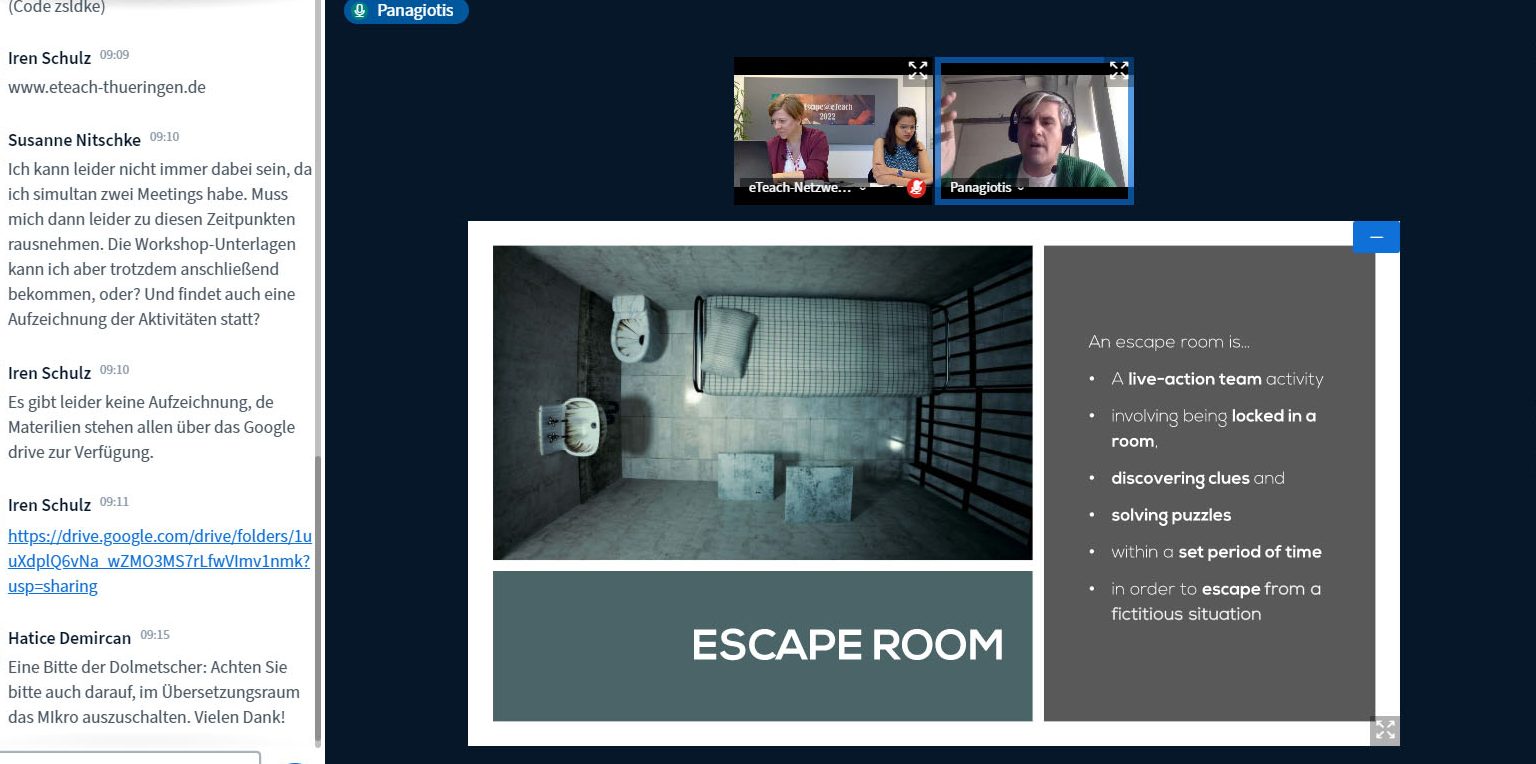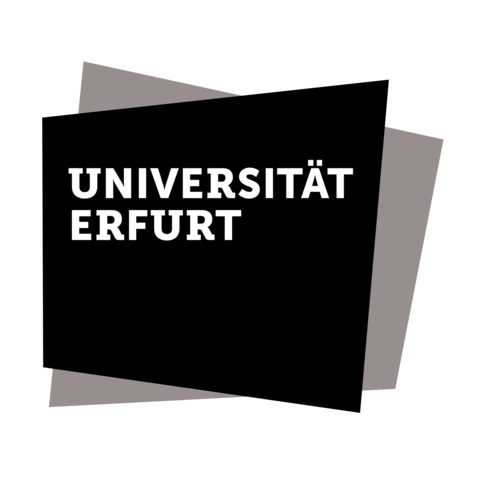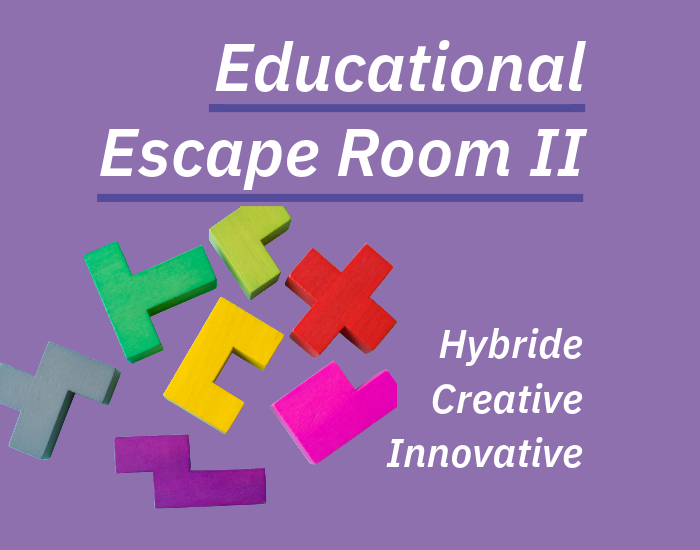
Educational Escape Room II
Educational Escape Room II
- January 26 & 27, 2023
- Bauhaus University in Weimar & BigBlueButton
- 9 a.m. to 5 p.m
Details and Contact
The face-to-face workshop in English will take place at the Bauhaus University in Weimar >>> in the Main Building, Room 109. It is also implemented via the open source web conferencing system BigBlueButton and will be offered as a hybrid workshop. A tutorial „How to use BigBlueBlutton“ in English can be found >>> here. No fees will be charged.
Contact
Sebastian Metag
Organisations der Veranstaltung
- +49 (0) 36 43 / 58 12 60
- sebastian.metag@uni-weimar.de
Dr. Iren Schulz
Kommunikation zur Veranstaltung
- +49 (0) 36 43 / 58 12 65
- iren.schulz@uni-weimar.de

Thank you for two inspiring days!
Background of the workshop
Following the shift from traditional didactic classroom models to the adoption of more learner-centred active learning approaches, escape rooms are gaining popularity as alternative learning and assessment environments designed to enhance students’ learning and 21st century skills in primary, secondary, higher education, and professional development programs. An educational escape room (EER) can be defined as an instructional method requiring learners to participate in collaborative playful activities explicitly designed for domain knowledge acquisition, skill development or behavioural change so that they can accomplish a specific goal (e.g., escape from a physical or virtual room, solve a murder mystery, or break into a vault) by solving puzzles linked to unambiguous learning objectives in a limited amount of time. Research indicates that, due to their playful nature which favours positive behaviour, EERs can enhance learners’ motivation, engagement, and time management, increase confidence in critical thinking and decision-making, improve knowledge acquisition and academic performance. They can also encourage social interaction, which is very important in the new era of increased hybrid delivery brought upon by COVID-19.
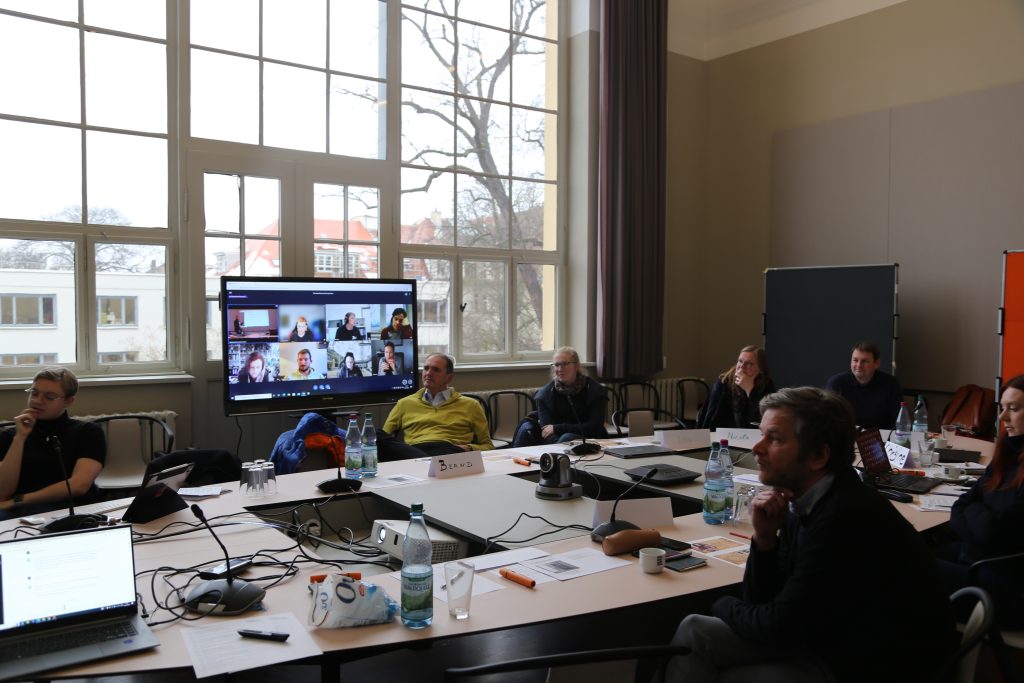
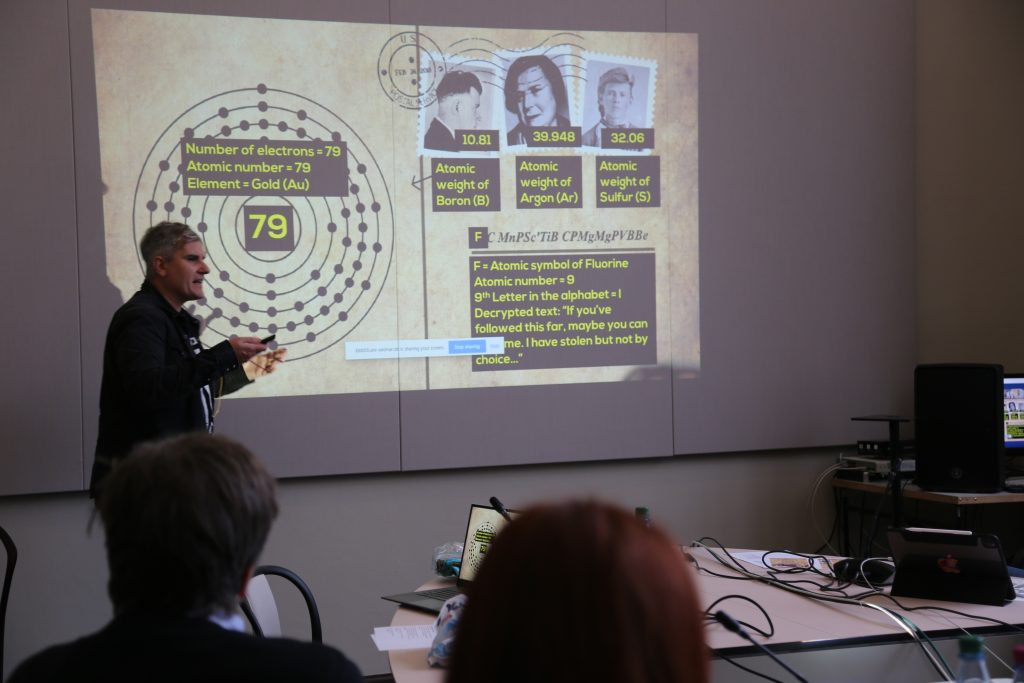
What we plan to do in the workshop
This workshop will introduce participants to Room2Educ8, a conceptual framework for EER design based on Design Thinking principles, that can be adapted to any subject and escape room type. This framework allows practitioners to develop their creative confidence, which is required for game-based learning to be fully realised, by engaging in hands-on projects that focus on building empathy, promoting a bias toward action, encouraging ideation, and fostering active problem-solving. Its process can be described as a cycle of (1) empathising and observing, (2) defining the problem, (3) contextualising, (4) designing puzzles, (5) briefing and (6) debriefing the participants, (7) prototyping and playtesting, (8) documenting, and (9) evaluating (Fig. 1), with the designers also reflecting and devising throughout the cycle. By the end of the workshop, participants are expected to be able to: demonstrate an understanding of puzzles, themes, and challenges commonly used in escape rooms; critically analyse and identify educational purposes for using ideas based on escape rooms; and use Room2Educ8 to plan, design, facilitate, and evaluate their own educational escape rooms. >>> Click here to find a detailed workshop plan.
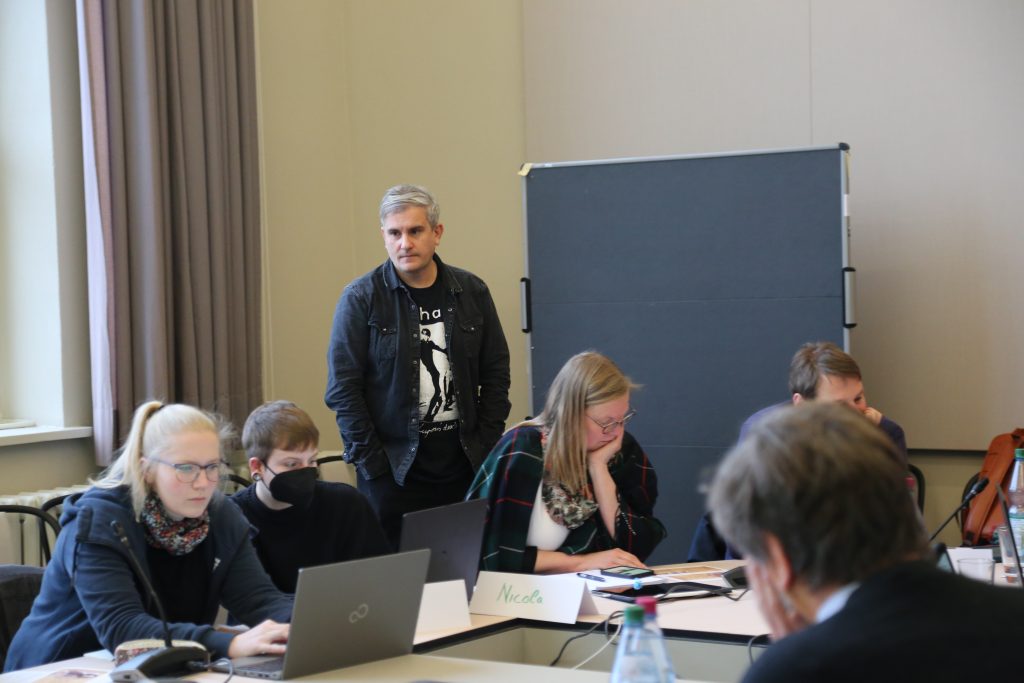
The results will improve your skills
Learning Objectives and Outcomes: After this workshop participants should be able to: Critically understand the key principles and applications of escape rooms in educational settings. +++ Use a conceptual framework to build empathy for students, identify student needs, and translate them into educational escape room specifications. +++ Work as a member of a development team to design, prototype, and evaluate an educational escape room. +++ Document and critically reflect on the use of educational escape rooms.
Documentation of the results: input is available to participants as a PDF, Process and results from the work of the participants are summarized (online or PDF), Summary of the workshop by the organizers.

Panagiotis Fotaris
Dr Panagiotis Fotaris is Principal Lecturer at the University of Brighton. He is the module leader for Game Design and Development, Narrative Design, and Design Thinking. He was Course Leader for BSc (Hons) Digital Games Development and BSc (Hons) Computer Science for Games from 2018 to 2022. Furthermore he is an active researcher in the area of Game-based Learning. He chaired the 14th and 15th European Conference on Games-Based Learning (ECGBL 2020, ECGBL2021) and the 21st European Conference on e-Learning (ECEL 2022). Dr Fotaris has been a technical committee member for more than 30 international conferences. He has authored or co-authored 32 papers in peer-reviewed journals and international conference proceedings (Google Scholar Citations: 880). He is also Senior Fellow of the Higher Education Academy (SFHEA) and Certified Scrum Master (CSM). Before entering academia, Dr Fotaris held a variety of roles in the Creative Industries, including mashup artist (soundcloud.com/bynar, 38 tracks, 600,000+plays), radio producer/podcaster (mixcloud.com/bynar, 400+ music podcasts), DJ, club promoter, blogger, video editor, graphic designer, web developer, and music/videogames journalist. For more info >>> click here

Past Events
Date
- 26. - 27.01.2023
- Expired!
Time
- All Day
Local Time
- Timezone: America/New_York
- Date: 26. - 27.01.2023
- Time: All Day
Location
Online - BBB
- Online - BBB
Organizer
-
eTeach-Netzwerk Thüringen
